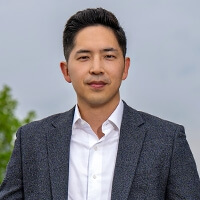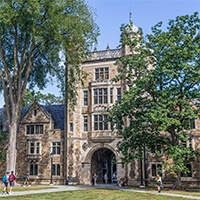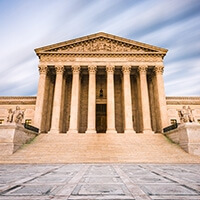For Professor Jenna Cobb, perhaps the most important thing a lawyer can do is help a person win their freedom.
“Walking someone out of prison after decades—someone you’ve come to know and develop a relationship with, who has been through so much and has so much to give—It is difficult to think of moments that are as rewarding in your career,” she said.
This fall, Cobb joins the Michigan Law faculty in a role perfectly suited to her dedication—as co-director of the Michigan Innocence Clinic, which fights for the release of men and women who have been wrongfully convicted in the criminal justice system. It will be something of a homecoming for Cobb, who grew up in Detroit and whose father is a Michigan Law graduate.
A rich and varied background
Cobb developed her dedication to public-service work early. After earning her JD at Harvard Law School in 2007, she spent two years at Covington & Burling in Washington, DC, where her litigation practice included criminal post-conviction pro bono work. Then she spent two years clerking on the US District Court for the Eastern District of Michigan, already pretty sure she would pursue a career in criminal defense. But first, she wanted to pursue a different avenue she’d been thinking about since her teens: divinity school.
“The law has its limits,” she said. “I wanted to think about other ways to pursue and promote justice, and divinity school was an opportunity to explore that. It was not my intention that I would not be a lawyer anymore. Also, in divinity school I learned a lot about pedagogy and teaching, and I was really drawn to it.”
After earning her master of divinity at Yale in 2014, Cobb worked for nearly eight years in the Special Litigation Division of the District of Columbia’s Public Defender Service. While doing that work, she also started teaching legal writing as an adjunct professor at the University of the District of Columbia. “Another professor there would talk to me about teaching full time, and I would always say, ‘Oh, I would love to teach, I’m just not ready to stop practicing law yet.’”
However, when Boston College approached her in 2020 about an opening in their criminal defense clinic, the combination of advocacy and teaching seemed like a good fit. Yet now she’s found an even better fit, continuing her teaching and advocating for the wrongfully convicted in her home state.
“Michigan Law is a great school, and the state of Michigan is a place where I already have ties, thoughts, and passions. I could not pass that opportunity up,” she said.
Prepared for the new challenge
Cobb finds motivation in the people she works for, and that extends to her new role.
“The thing that really drives me to the work is the clients,” she said. “When you are working with people who have been incarcerated—many for long periods of time—you’re often dealing with people who’ve been very marginalized and who may no longer be entitled to an attorney. Through the clinic, we are literally able to expand access to justice. In any number of jurisdictions across the country, if clinics are not representing these individuals, they are not being represented.”
Yet Cobb sees herself as a teacher just as much as an advocate.
“I absolutely love teaching. I love working with students. I feel so fortunate to be in a position where I can do the work that I’m passionate about, and that I also get to work with students and accompany them on their journey—and teach them what it means to be a client-centered advocate and stare down some of the injustice embedded in our system.”
As she prepares for her latest role, Cobb’s primary goals are simple: Obtaining relief for clients and becoming embedded in Michigan Law.
“I am really hoping that I can dive right into the community. Part of what has made teaching so rewarding for me is developing relationships with students and mentoring students, even beyond the classroom. I would like to be a meaningful part of the community from the very beginning.”







